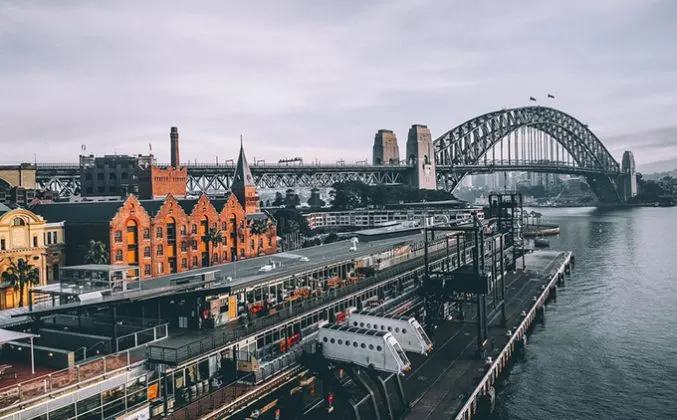Choosing the Best Rehab in Australia: A Comprehensive Guide to Finding the Right Treatment Centre
Are you or a loved one seeking treatment for addiction or substance abuse in Australia? Finding the best rehab centre can feel overwhelming, with so many options to choose from. But don’t worry – we’re here to help! In this comprehensive guide, we’ll walk you through the process of finding the right treatment centre that meets your needs.
Choosing the best rehab in Australia is a crucial decision that can greatly impact your recovery journey. It’s important to find a facility that offers personalised care, evidence-based treatments, and a supportive environment. Whether you’re looking for a residential programme, outpatient services, or specialised treatment for a co-occurring disorder, we’ll provide you with valuable information to guide your search.
Don’t let the fear of choosing the wrong rehab centre hold you back. Let’s embark on this journey together and find the best treatment centre that will support your recovery.
Factors to consider when choosing a rehab centre
Several factors should be taken into account when choosing a rehab centre in Australia. These factors will help determine which treatment centre is the best fit for you or your loved one. One of the first considerations is the type of addiction or substance abuse you’re seeking treatment for. Some rehab centres specialise in certain addictions, while others offer a more general approach.
Another important factor to consider is the level of care you require. Residential programmes provide 24/7 supervision and support, making them ideal for individuals with severe addiction or those who need a structured environment. Outpatient services, on the other hand, allow you to receive treatment while still maintaining your daily responsibilities. It’s important to assess your personal circumstances and choose a programme that aligns with your needs.
Additionally, the length of the programme should be considered. Some rehab centres offer short-term programmes, typically lasting 30 days, while others provide longer-term options. The duration of treatment will depend on various factors, including the severity of your addiction and your personal goals.

Lastly, it’s essential to assess the treatment approaches and therapies offered by the rehab centre. Look for evidence-based treatments that have been proven effective in treating addiction. These may include individual counselling, group therapy, cognitive-behavioral therapy (CBT), and holistic approaches such as mindfulness and meditation. The availability of specialised programmes for co-occurring disorders should also be considered if you have a dual diagnosis.
By carefully considering these factors, you can narrow down your options and find a rehab centre that aligns with your specific needs and goals.
Types of rehab programmes
Australia offers a range of rehab programmes to cater to different individuals and their unique needs. Understanding the various types of programmes can help you make an informed decision about which one is right for you or your loved one.
- 1. Residential Rehab Programmes: These programmes provide a structured and supportive environment where individuals reside in the facility for a specified period. They offer 24/7 supervision, medical care, and a range of therapies to support recovery. Residential programmes are ideal for those with severe addiction or those who require a focused and intensive approach.
- 2. Outpatient Rehab Programmes: Outpatient programmes allow individuals to receive treatment while still living at home and maintaining their daily responsibilities. They usually involve regular therapy sessions, group support, and educational programmes. Outpatient programmes are suitable for individuals with less severe addiction or those who have completed a residential programme and need continued support.
- 3. Day Rehabilitation Programmes: Day rehab programmes offer structured treatment during the day, allowing individuals to return home in the evenings. They typically include a combination of therapies, counseling, and support groups. Day rehab programmes are a flexible option for individuals who require intensive treatment but prefer to sleep at home.
- 4. Dual Diagnosis Programmes: Dual diagnosis programmes are designed for individuals who have both a substance abuse disorder and a co-occurring mental health condition. These programmes address both conditions simultaneously, providing integrated treatment to improve overall well-being.
- 5. Therapeutic Community Model (TC) are long-term treatment programmes, generally lasting 6-12 months. They focus on the whole person and changes to their lifestyle – not simply abstinence from harmful substances, by addressing the behavioural, psychological, and social aspects that lead up to and are caused by addiction. These programmes encourage clients to examine their thoughts and behaviours to help them become more pro-social and to engage in positive activities. TC programmes are mostly offered by not-for-profit organisations.
- By understanding the different types of rehab programmes available, you can choose the one that aligns with your needs and offers the best chance for successful recovery.
Accreditation and licensing of rehab centres
Accreditation and licensing are important indicators of a rehab centre’s quality and adherence to industry standards. When researching rehab centres in Australia, it’s essential to check for accreditation and licensing to ensure you’re choosing a reputable facility.
Accreditation is a voluntary process in which a rehab centre undergoes a rigorous evaluation by an external organisation. Accredited centres have met certain criteria and standards set by the accrediting body, demonstrating their commitment to providing quality care. In Australia, the leading accrediting body for rehab centres is the Australian Council on Healthcare Standards (ACHS).
Licensing, on the other hand, is granted by the state or territory government and ensures that the rehab centre meets specific legal requirements. A licensed rehab centre has met the necessary regulations and has been deemed safe and capable of providing appropriate care.

When researching rehab centres, look for accreditation from the ACHS and valid licensing from the relevant government authorities. These certifications provide assurance that the centre meets industry standards and has undergone thorough evaluations to ensure quality care.
Location and amenities of rehab centres
The location of a rehab centre can play a significant role in your recovery journey. Some individuals prefer a facility close to home, providing easy access for family support and aftercare. Others may find that a more secluded location away from familiar triggers and environments is beneficial for their recovery.
Consider whether you prefer a rehab centre in a serene natural setting or one located within a bustling urban area. The ambiance and surroundings can greatly impact your experience during treatment. Some rehab centres offer amenities such as swimming pools, gyms, and recreational activities, which can contribute to a holistic and enjoyable recovery experience.
It’s important to note that location and amenities should not be the sole determining factors in choosing a rehab centre. The quality of care and treatment approaches should always take precedence. However, finding a location and facility that aligns with your preferences can enhance your overall experience and contribute to a successful recovery.
Take the First Step Towards Recovery
Treatment approaches and therapies offered
The treatment approaches and therapies offered by a rehab centre are vital considerations when choosing the best treatment centre for your needs. Effective rehab centres employ evidence-based treatments that have been proven to help individuals overcome addiction.
Some common treatment approaches and therapies include:
- 1. Individual Counseling: One-on-one counseling sessions provide a safe and confidential space to explore underlying issues, develop coping strategies, and set goals for recovery.
- 2. Group Therapy: Group therapy sessions allow individuals to connect with others who are going through similar experiences. Sharing stories, challenges, and successes can provide a sense of support and community.
- 3. Cognitive-Behavioral Therapy (CBT): CBT helps individuals identify and change negative thought patterns and behaviors that contribute to addiction. It focuses on developing healthy coping mechanisms and improving self-awareness.
- 4. Holistic Therapies: Holistic approaches such as mindfulness, meditation, yoga, art therapy, and equine therapy can complement traditional therapies by promoting overall well-being and relaxation.
- 5. Family Therapy: Family therapy involves the participation of family members in the treatment process. It aims to improve communication, resolve conflicts, and rebuild relationships that may have been strained due to addiction.
- 6. Education and Life Skills Training: Many rehab centres offer educational programmes to help individuals understand the nature of addiction and develop essential life skills for relapse prevention and long-term recovery.
When researching rehab centres, inquire about the treatment approaches and therapies they offer. Look for centres that offer a comprehensive and individualised approach to treatment, as this will increase your chances of success in overcoming addiction.
Specialised programmes for specific addictions or demographics
- 1. Alcohol Rehab Centres: These centres focus specifically on individuals struggling with alcohol addiction. They offer specialised treatment approaches and therapies tailored to address the unique challenges associated with alcohol abuse.
- 2. Drug Rehab Centres: Drug rehab centres cater to individuals with substance abuse disorders related to illicit drugs, prescription medications, or a combination of substances. They provide comprehensive treatment and support for drug addiction.
- 3. Gambling Rehab Centres: These centres specialise in helping individuals overcome gambling addiction. They offer counseling, therapy, and support groups specifically designed for gambling-related issues.
- 4. Gender-Specific Rehab Centres: Some rehab centres cater exclusively to either men or women. These gender-specific programmes create a safe and supportive environment where individuals can address addiction and related issues in a gender-specific context.
- 5. LGBTQ+ Rehab Centres: Rehab centres that focus on the LGBTQ+ community provide a space where individuals can receive treatment in a supportive and understanding environment. These programmes address the unique challenges faced by LGBTQ+ individuals in relation to addiction and recovery.
- If you or your loved one has a specific addiction or belongs to a particular demographic, consider seeking a specialised programme that can address your unique needs and provide tailored support.
Success rates and testimonials of rehab centres
Assessing the success rates and testimonials of rehab centres can provide valuable insight into their effectiveness and the experiences of past clients. While success rates can vary, it’s helpful to consider centres with a track record of positive outcomes.
When researching rehab centres, inquire about their success rates and request testimonials from former clients. A reputable rehab centre should be transparent about their success rates and be willing to provide references or testimonials upon request.
It’s important to note that success rates alone should not be the sole determining factor in choosing a rehab centre. Recovery is a highly individualised journey, and what works for one person may not work for another. However, positive testimonials and success rates can give you confidence in a rehab centre’s ability to provide quality care and support.
Cost and insurance coverage for rehab treatment
The cost of rehab in Australia can vary significantly depending on the type of programme, length of stay, and amenities provided. It’s essential to consider your budget and explore options for insurance coverage to ensure that treatment is accessible and affordable. Some rehab centres may accept private health insurance, while others may offer flexible payment plans or financial assistance programmes. Generally, insurers will cover up to a maximum of 21 days and pay $1,000 per day for rehabilitation programmes.
To qualify, the rehabilitation facility must be licensed as a hospital. The rates that these hospitals charge insurance providers can vary greatly. It’s advisable to contact your insurance provider to inquire about coverage for addiction treatment and to discuss your options. While cost is an important consideration, it’s crucial not to compromise on the quality of care. Investing in your recovery is a worthwhile endeavor, and the long-term benefits of successful treatment far outweigh the initial costs.
When exploring rehab centres, inquire about the cost of treatment and any available insurance coverage or financial assistance programmes. This will help you make an informed decision and ensure that treatment is within reach.
Why Australians are seeking rehab abroad
In 2017-2018, about 130,000 people received some form of publicly funded alcohol or drug addiction treatment in Australia, with counselling being the most common type of treatment.² Due to a lack of publicly-funded facilities, and the high prices associated with private treatment, many Australians seek rehab abroad in places like Thailand and Bali.
Rehab in Thailand
Routinely ranked as one of the world’s best locations for rehab and medical tourism, Thailand is home to many world-class rehabilitation facilities. The Thai rehab industry was established more than ten years ago, aimed at English-speaking clients from around the globe. With affordable, high-quality treatment options, Thailand offers luxury rehab services at a fraction of the cost of similar programmes in Australia.
The treatment approaches in Thailand rehab centres are fairly advanced and meet recognised international standards. Programmes have adapted to treating people from different cultures and backgrounds with elements such as evidence-based behavioural therapies, secular 12-step models, mindfulness meditation, and a range of complementary holistic therapies.
Rehab in Bali
Bali is one of South East Asia’s up-and-coming destinations for addiction recovery and mental health retreats. Still lagging behind Thailand in terms of treatment and facilities, the number of quality options continues to grow. Many Australian addiction specialists have decided to open rehab centres in Bali that cater to Australians and other Westerners. Due to Australia’s proximity to Bali and the lack of affordable treatment options available at home, Australians account for the majority of clients in the island’s rehab centres.
In terms of licencing, as long as a rehab centre has a contract with an Indonesian registered doctor, they will be able to offer rehabilitation services. If your addiction is severe enough to warrant a medical detox, the procedure will be carried out under the supervision of an Indonesian medical team.
NIDA. “Therapeutic Communities.” National Institute on Drug Abuse, 23 Jul. 2015, https://www.drugabuse.gov/publications/research-reports/therapeutic-communities. Accessed 21 Apr 2020.
Australian Institute of Health and Welfare 2018. Alcohol and other drug treatment services in Australia: 2016–17. Drug treatment series no. 31. Cat. no. HSE 207. Canberra: AIHW.
Leading Institutions We Abide By

